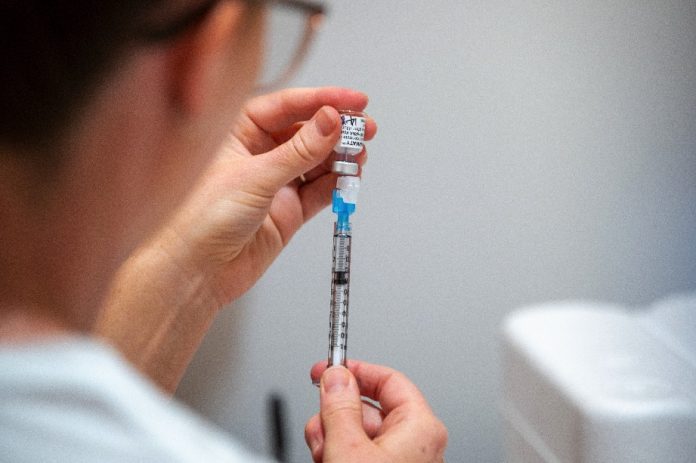The European Medicines Agency has concluded the AstraZeneca vaccine is “safe and effective” but cannot completely rule out a link to blood clots.
The EU’s drug watchdog says it is still convinced the benefits of the vaccine outweigh the risks after more than a dozen countries to suspend its use.
EMA director Emer Cooke said after its investigation into 30 cases of a rare blood clotting condition that the “clear” conclusion was the vaccine “benefits in protecting people from COVID-19 with the associated risk of death or hospitalisation outweighs the possible risks”.
The agency will however update its guidance to include an explanation about the potential risks on both the patient leaflet and in the information for healthcare professionals, she said.
“This is a safe and effective vaccine,” said Mrs Cooke.
The agency has been under growing pressure to clear up safety concerns after a small number of reports in recent weeks of bleeding, blood clots and low platelet counts in people who have received the shot.
The agency’s review covering 5 million people, included 30 cases of unusual blood disorders in people in the European Economic Area (EEA), which links 30 European countries.
The EMA’s focus and primary concern has been on cases of blood clots in the head, a rare condition that’s difficult to treat called cerebral venous thrombosis (CVT) or a subform known as cerebral venous sinus thrombosis (CVST).
More than 45 million of the jabs have been administered across the EEA.
At least 13 European countries, including France, Germany and Italy, stopped administering the shot pending the review.
Australian GP clinics poised for rollout
More than 100 federally funded clinics will take bookings for COVID-19 vaccines from Friday to ease pressure on GPs and state-run health services.
The clinics, which will start delivering the jabs on Monday, don’t require a patient being a member of a practice.
Health Minister Greg Hunt says an average of 1000 doses will be available per week through the clinics, with some of the larger facilities having up to 2000 doses available.
“It’s an important step forward,” he said.
The move came as Prime Minister Scott Morrison sought to reassure Australians the vaccine rollout would be “tough” to deliver but the government was getting on with it.
Queensland’s vaccination program is back on track after concerns were raised about the AstraZeneca vaccine and anaphylaxis but the state accepted the findings of a review by the medicines regulator.
By Friday it is expected more than 250,000 people will have been vaccinated using either the Pfizer or AstraZeneca products.
A website set up by the government for people to check their eligibility has been inundated with requests, with thousands facing problems accessing it, but Mr Hunt insists 98 per cent of people have faced no problems logging on.
Labor says the government has created “chaos” with its online booking system.
But Mr Morrison says the “extraordinary” surge in interest showed how important Australians considered the vaccination program.
“It is a big project. It is a tough project. It is on a national scale unprecedented and we continue to step forward every single day.”
The federal government and business groups are also hopeful the vaccine program will lead to states no longer shutting borders when cases arise, providing more confidence to consumers and travellers.
Over the next week it is expected states will receive 150,000 doses, GPs 200,000, commonwealth clinics 50,000, and 100,000 doses will go to frontline workers and aged care.
More than 1000 GP clinics will start administering the vaccine next week, using their own booking systems.
The next phase of the program, known as 1b, includes six million Australians – those aged over 70, health care workers, Indigenous people aged over 55, adults with a specific medical condition or disability and high risk workers in defence, police, fire, emergency services and meat processing.
Australia’s medicines regulator says there are no specific problems around either of the two COVID-19 vaccines, but it is monitoring issues such as blood clots and allergic reactions.





